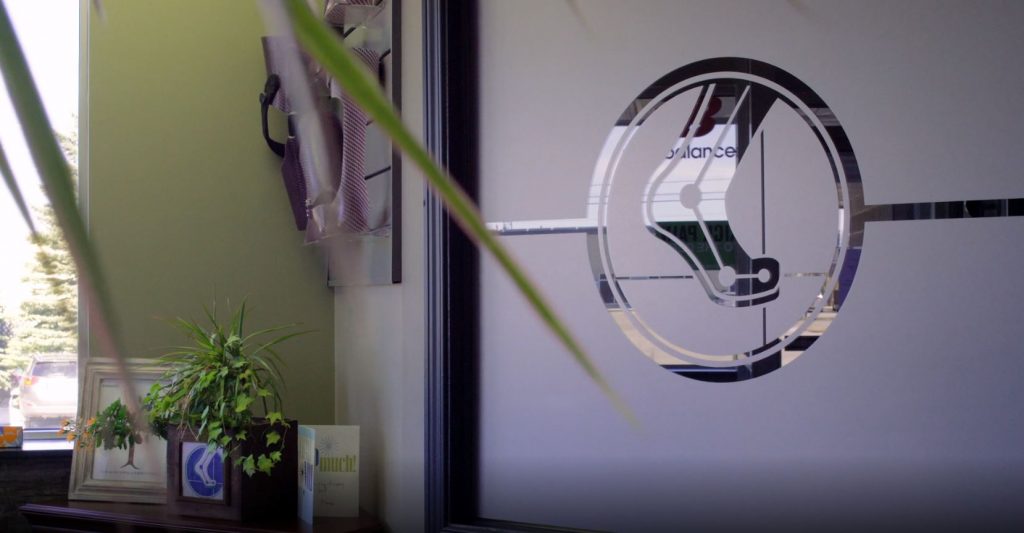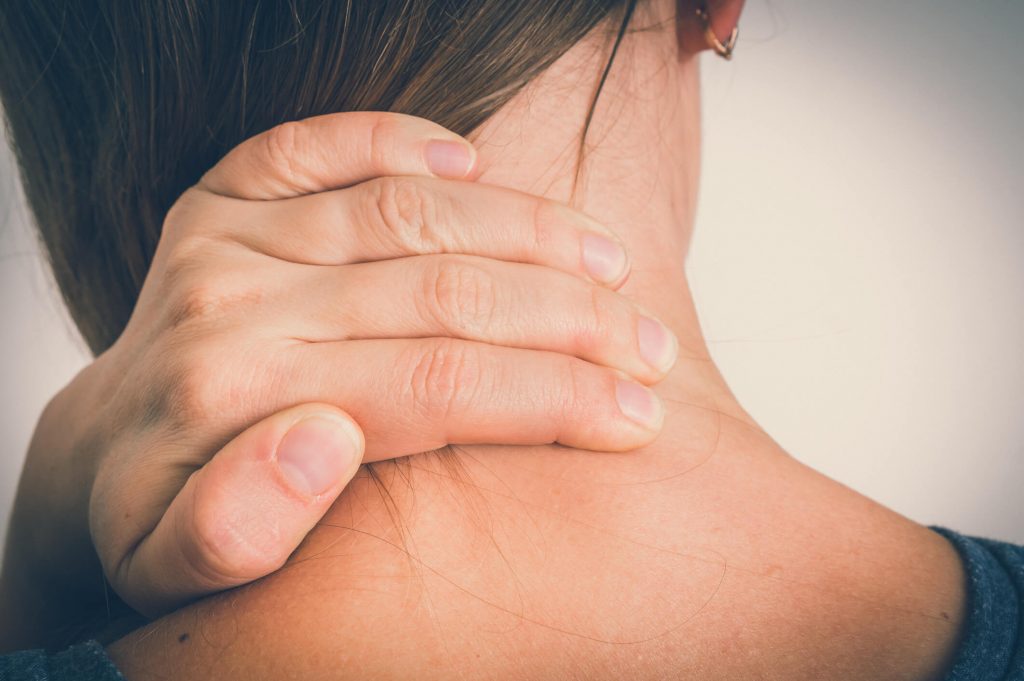Cervical orthoses are sometimes referred to as cervical collars or neck collars. The device fits around the neck, often bracing against the chin and the back of the head, in order to immobilize the cervical spine.
Some devices will wrap around the chin and posterior head for better stability, while others will extend from the head to the trunk for maximum support. You can learn more about various kinds of cervical orthosis below.
You may need to wear a cervical orthosis in the following situations:
- You have suffered a severe injury or fracture to the neck.
- You have had recent neck surgery.
- You have been diagnosed with a chronic condition affecting your neck.
Cervical orthoses are typically constructed from a soft fabric liner and a rigid plastic frame. When neck braces like these are required for patients, they are usually custom-fitted and measured to support the neck of the intended individual.
At Applied Biomechanics, our team includes Certified Orthotists and Registered Orthotic Technicians with Orthotic Prosthetics Canada (OPC). We are proud to be the only OPC accredited facility in the Guelph and Wellington County area. Contact us today to request a fitting for a cervical orthosis.

Our Fitting Process for Cervical Orthoses
When fitting a cervical orthosis for a patient, our team will use measurements, physical casting or 3D laser imaging to create precise and accurate dimensions of your head, neck, and back.
Your cervical orthosis is then ordered, assembled, or a custom cervical orthosis is created in our on-site laboratory.
At the final fitting appointment, your orthotic device will be adjusted to ensure a proper fit and maximize support and comfort. If you have any issues with the fit or comfort of your cervical orthosis, please contact us immediately for further consultation.

Conditions Treated
Cervical orthoses are prescribed and custom fit to aid in the treatment of a range of pathologies and biomechanical issues, including:
- Cervical Fracture
- Cervical Instability
- Degenerative Disc Disease
- Disc Herniation
- Nerve Injury / Compression
- Osteoarthritis
- Osteoporosis
- Post-Surgery
- Severe Cervical Stenosis
- Spondylolysis
- Spondylolysthesis
- Whiplash
- And more

Types of Cervical Orthoses
There are many types of cervical orthoses, which are used to treat a variety of conditions affecting the neck and cervical spine.
At Applied Biomechanics, our team will provide you with expert recommendations on the best types of cervical orthosis for your specific condition. Here are some common terms used when discussing types of cervical orthosis devices:
- Soft Collars — Soft collars are usually made from materials such as felt, foam, or rubber. They will wrap around the neck with a closure at the rear and contain no hard material for additional support.
- Philadelphia Collars — These collars are constructed from unicellular or ‘memory’ foam that wraps around the neck. The foam is moulded to make contact with the chin and against the back of the head.
- Plastic Collars — Often referred to as a semi-rigid collar, these collars are usually made from hard plastic material. These will be constructed from overlapping sections that fit around the neck and support the chin.
- Wire-Frame Collars — This type of cervical collar features a rectangular ring, which fits between the chin and the chest. The device can be adjusted by straps attached to a hard plastic section at the rear of the neck.
- Two-Post Orthosis / Four-Post Orthosis — These devices feature chest and thoracic extensions, which are connected to the cervical orthosis via one or two anterior and posterior posts. These posts provide additional neck stability and control for post-surgical applications. These devices are also called ‘Denison braces’.
- Halo Brace — The halo brace is another extension of the standard cervical orthosis, typically used in conjunction with a two-post or four-post orthosis. The device includes a ring structure attached by pins to the forehead area, which provide further neck stability for certain conditions.